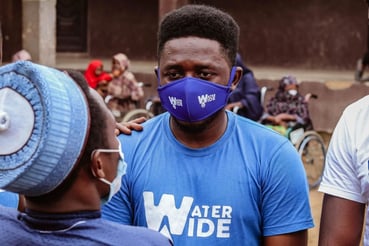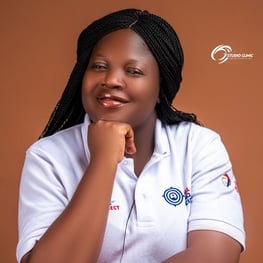NEWS
October 5, 2020

IN BRIEF
It’s been a challenging but productive year as the Lab adapts to the effects of working under the new normal of the Covid-19 pandemic, along with the rest of the world. A key part of our work this year was launching a Virtual Accountability Incubator and also supporting our existing accountability entrepreneurs in our network on projects aimed at strengthening Covid-19 response and recovery efforts. Earlier this year we created a fund for our accountapreneurs who pitched ideas for these mini-grants on a competitive basis. We’ve been excited by the quality of projects that have come out of this initiative. […]
SHARE
It’s been a challenging but productive year as the Lab adapts to the effects of working under the new normal of the Covid-19 pandemic, along with the rest of the world. A key part of our work this year was launching a Virtual Accountability Incubator and also supporting our existing accountability entrepreneurs in our network on projects aimed at strengthening Covid-19 response and recovery efforts.
Earlier this year we created a fund for our accountapreneurs who pitched ideas for these mini-grants on a competitive basis. We’ve been excited by the quality of projects that have come out of this initiative. Here, we highlight a few of these innovative projects, beginning with two films and a work of investigative journalism from our accountapreneurs in Nigeria and Pakistan.
Amplifying Unheard Voices

Wilson Atumeyi is an accountapreneur taking part in our incubator program in Nigeria. Passionate about ensuring all Nigerians have access to clean water, Wilson established WaterWide, an NPO dedicated to tracking government spending and international aid for water, sanitation and hygiene in rural communities.
“I pitched a documentary to highlight the water, sanitation and hygiene challenges people in marginalised communities are facing, especially during the Covid-19 pandemic,” explains Wilson.
“The essence of the documentary is to spark conversation, and hopefully, start a social movement that can change and improve society. It’s deliberately character-driven, focused on the stories of real people affected by lack of access to clean water, which puts a human face on global issues that might otherwise seem distant or unrelatable.”

The documentary is titled “Amplifying Unheard Voices” and Wilson used the funding to pay for a videographer, a photographer, a graphic designer and internet access. During production he faced challenges in using local transport to travel to the shooting locations in both rural and suburban communities and used his personal funds to cover that expenses.
“The documentary is currently being edited to fit global standards,” says Wilson. “When we’re done with editing, we intend to share it with media partners, social media influencers and other stakeholders to ensure that it gets the maximum reach and the aim of the documentary is achieved.”
A Film Series on Colorism

Naeema Butt is in an accountapreneur who took part in our incubator program in Pakistan. A dynamic theater director, trainer and social activist, Naeema established Pehlaaj StoryCenter for Change, an NPO which uses various forms of theater training and performances to bring attention to critical issues within communities.
In March when borders began being closed across the globe to curb the spread of Covid-19, Naeema found herself stranded in New York City, unable to travel back to her native Pakistan. In spite of the challenging circumstances, Naeema decided to write and produce a collection of short films highlighting the issue of colorism that young Pakistani and other South Asian women face throughout their lives.
“Moreover, the films show the struggles of Caucasian women in the US under similar pressure in catering their physical appearance, especially skin tone, to societal expectations,” explains Naeema. “The films not only illustrate the contrast between Eastern and Western cultures, but also the external factors versus the internal drives of oneself.”

Naeema utilised the funding she received from the Lab in the initial logistics for rehearsals, food and transportation during shooting. It helped her kick off the initial meetings for the project.
“This is the first time I ever shot a short film in New York,” says Naeema. “I learned a lot about production and logistics and got connected to a crew from the NYU Film school. The shooting went well and we were able to pull it off smoothly with help of some sponsors and co-producers.”
Naeema did face serious challenges when a few of the artists she was working with fell sick and she herself developed an illness, forcing her to postpone the shooting dates, but she persevered and managed to finish shooting the first film of the planned collection.
“I am in the process of editing the short film,” says Naeema. “After the editing, I will publish it on digital platforms in Pakistan and will launch my own digital channel internationally. I am also in the process of partnering with distribution networks in South Asia.”
Ultimately, Naeema plans to shoot five short films as part of the web series and is currently fundraising and planning production for the next film.
Holding Healthcare Providers to Account

Elfredah Kevin-Alerechi is an accountapreneur taking part in our incubator program in Nigeria. A passionate investigative journalist, Elfredah set out to expose the sale of fake prescription drugs and the corrupt health workers facilitating the trade in Rivers, Nigeria.
“During my search for drug stores suspected of selling fake and expired products, I found evidence of three major retailers selling expired products,” says Elfredah. “I also caught illegal activities on camera in health centres, which included charges for immunization despite the fact that the Government announced that immunization is free.”
In the course of her investigation, Elfredah also discovered a health centre where health workers were colluding with staff members of the National Population Commission to charge people for birth certificates of newborns, which is contrary to government policy.
Elfredah also uncovered a case in which postnatal mothers who arrived at a healthcare centre at around 8:30 in the morning were denied access to immunisation for their babies and told to return to their homes.

“I quickly put a call across to the head of Rivers State Immunization and informed him of what was happening,” explains Elfredah. “He appealed to me to inform the nursing mothers not to leave and that he would call the officer in charge to attend to every baby. Unfortunately a few had already left before I finished making the call. But, the head of the health facility rushed in and told the mothers to wait. This was a great achievement for me as over 50 babies were immunized.”
Elfredah has published her first investigation on the sales of expired products and has also sent her findings on corrupt health workers for publication. The drugs bought from the pharmacies suspected of selling fake and expired medicines will be tested.
